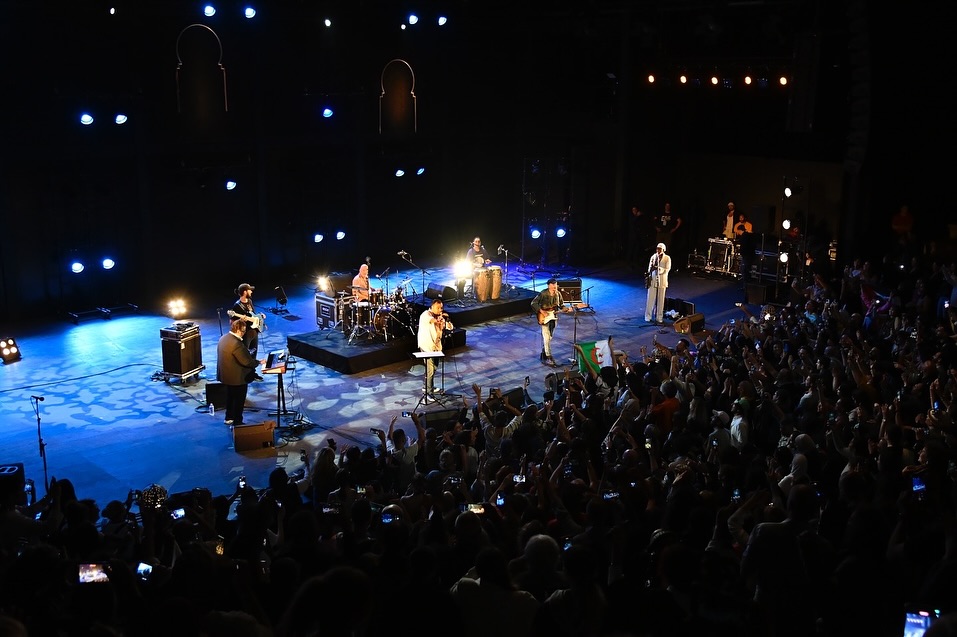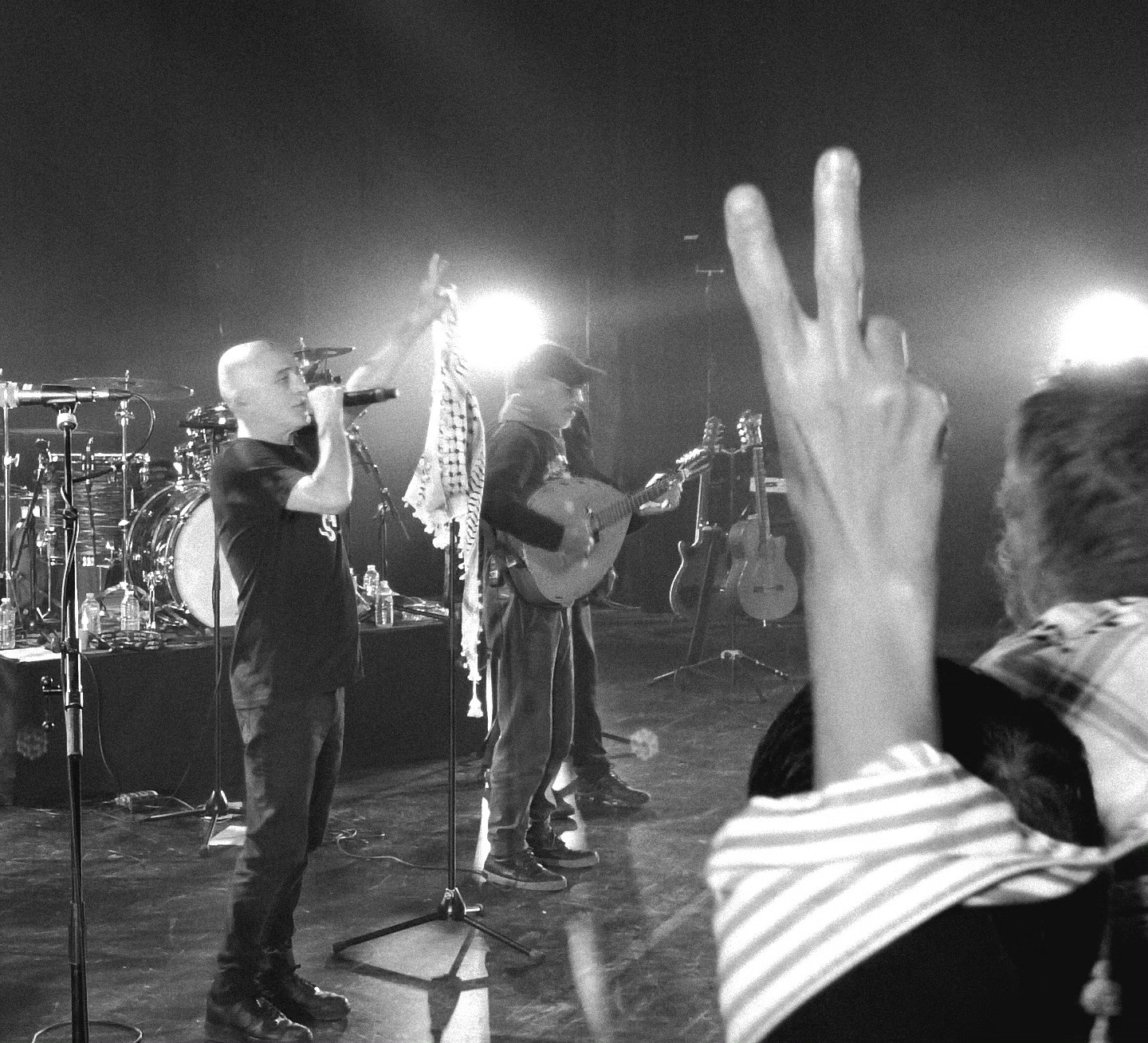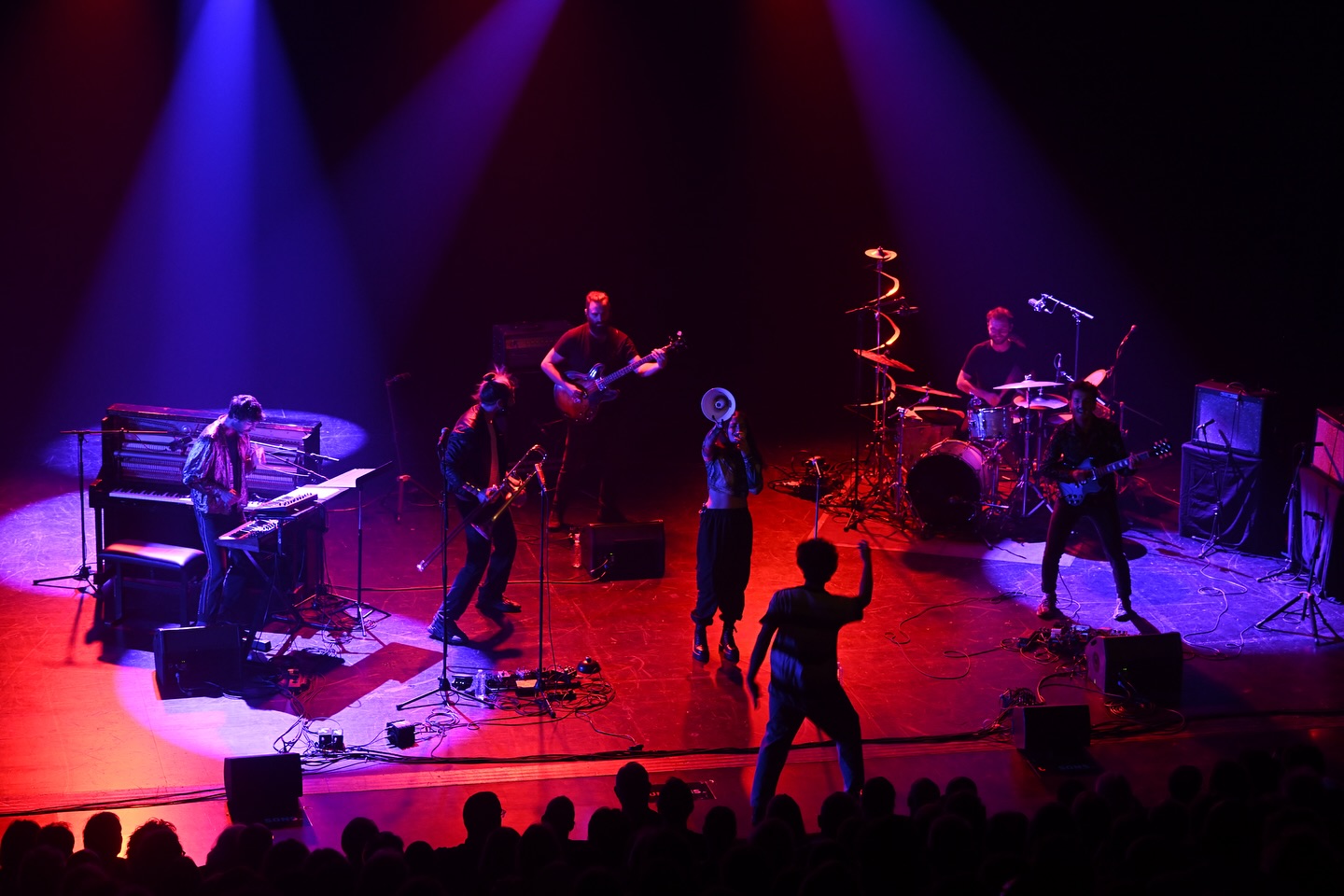From 10 to 22 September 2024, the city of Montpellier, in Southern France, once again became a vibrant stage for Arab cultures during the 19th edition of the Festival Arabesques. Over nearly two weeks, audiences experienced a powerful convergence of tradition and modernity, activism and art, joy and resilience. Created by Habib Dechraoui in 2006, Arabesques remains the largest European festival dedicated exclusively to the arts of the Arab world — and this year, it deepened its mission with moving tributes and urgent voices.
“Arabesques is a festival entirely dedicated to the arts of the Arab world,” said Dechraoui, founder and artistic director. “Its goal is to bring people together and to offer a more accurate image of Arab culture — showing that it’s diverse, ancient, and constantly evolving. When we speak of Arab culture, we must really speak of Arab cultures, because the geographic and cultural diversity is immense, from the Maghreb to the Mashrek, from Sicily to Spain.”
Arabesques is, as Dechraoui insists, about breaking down monolithic views. While many associate Arab traditions only with folklore or ancient heritage, the festival reveals a far richer reality — a living cultural scene influenced by immigration, colonisation, resistance, and creativity. “There’s a traditional scene that has reinvented itself,” he explained. “It draws from today’s codes, today’s sounds. It’s a culture shaped by a long history — of conquest, of being conquered, of diaspora. That mixture gives rise to something extremely rich and unique.”
 |
| Raïna Raï at Arabesques 2024. Photo: Festival Arabesques |
Spotlight on Palestine: Art as Refuge and Resistance
This year’s edition was marked by a special thematic focus on Palestine, a territory under the watchful eye of the world, ever since the ongoing large-scale attacks and massacres against the population of Gaza began. Titled “Once Upon a Time in Palestine”, the programme dedicated an entire day to showcasing the resilience and creativity of the Palestinian artistic scene.
“This theme was particularly close to our hearts,” Dechraoui shared. “The Palestinian scene has always held an important place at Arabesques, just like the Lebanese or Syrian scenes, but this year it was crucial to amplify those voices. I go to Palestine every year, and we maintain close ties with its artists. Arabesques offered a space of free expression for many of them who struggle to perform elsewhere.”
One of the most poignant moments came with Tareq Abboushi, who offered an evocative musical journey blending traditional Palestinian repertoire with the emotional weight of recent events in Gaza. The festival also welcomed Rasha Nahas, whose performance combined indie rock with poetry and protest.
 |
| Mouss et Hakim at Arabesques 2024. Photo: Juan Antonio Vázquez |
Women Leading the Stage
Another defining thread of Arabesques 2024 was the strong presence of Arab women artists. While not explicitly framed as a theme, the inclusion of female performers organically shaped the festival’s atmosphere.
“We wanted to highlight the strong voices of Arab women,” said Dechraoui. “Artists like Kamilya Jubran, Yousra Mansour from Bab L’Blues, Climène Zarkan from Sarāb, Souad Massi and Ghalia Benali were central to the programme. This wasn’t by design at first — it just happened naturally. But it worked beautifully, and the audience really felt the energy.”
These artists didn’t just perform — they told stories of identity, exile, and resistance. From Massi’s poignant ballads to Sarab’s jazz-inflected political lyricism, their performances underlined that Arab women are not only preserving heritage but pushing it into new sonic and ideological frontiers.
 |
| Sarāb at Arabesques 2024. Photo: Festival Arabesques |
A Festival that Grows with Its Audience
Now nearly two decades old, Arabesques has grown into a true cultural phenomenon. What started as a bold experiment is now a celebrated international event, drawing a loyal and growing public.
“From the very beginning, I believed in the future of this festival,” Dechraoui reflected. “I believed it would bring people together, and I wasn’t wrong. Today, Arabesques fills a real gap in France — we have a rich Arab cultural scene, and this festival gives it the visibility it deserves.”
A few years ago, a study with a CNRS researcher revealed that while around 60% of the audience is local, a significant 40% travels from across France and even abroad. “We even met people who have been coming from New Caledonia for several years,” he recalled proudly. “Some plan their entire holidays around the festival.”
Beyond Music: A Multidisciplinary Encounter
Arabesques is not only about concerts. The festival prides itself on offering a multidisciplinary programme that includes cinema screenings, art exhibitions, panel discussions, children’s activities, and cultural workshops. It’s designed as a family-friendly, inclusive space where generations can meet and dialogue.
This diversity of formats also reflects the layered realities of Arab identities. As Dechraoui puts it, “Arabesques is not just a festival — it’s a space of encounter, of debate, of storytelling. It’s about showcasing an ever-moving culture that remains rooted, yet vibrant.”
Intense and Emotional Connections
Attending the Arabesques Festival for the first time allowed me to truly feel the energy of groups that, from either shore of the Mediterranean, maintain an intense and emotional bond with a broad audience. This was especially evident during the concert by Mouss et Hakim, who, since the 1990s, have been driving meaningful projects from Toulouse such as Zebda and Motivés. Their performance offered a moving journey through vintage songs that once resonated deeply with North African immigrant communities in France decades ago. That same powerful connection was felt during the concert by the long-running Algerian raï band Raïna Raï, whose celebrated and much-sung repertoire stirred strong emotions among the crowd.
And now, in 2025, the 20th edition of the Arabesques Festival is fast approaching — what surprises will it bring?
Author: Juan Antonio Vázquez, Transglobal World Music Chart co-founder, co-administrator and member; Mundofonías and Mil Mundos presenter.
